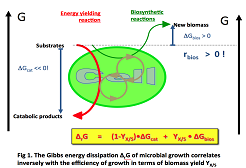
Urs von Stockar
Swiss Federal Institute of Technology, Lausanne (EPFL), Switzerland
Title: Biothermodynamics: Bridging thermodynamics with biochemical Engineering
Biography
Biography: Urs von Stockar
Abstract
Thermodynamics has had an enormous impact on a very wide variety of fields, including chemical engineering. Systematic application of chemical thermodynamics to process technology is one of the reasons why petrochemical processes can often be developed with a bare minimum of experimental work. In biochemical engineering the state of matter is radically different. The need for experimental trials is so overwhelming in bioprocess development that more often than not extensive use is made of high-throughput experimental platforms. However, more systematic application of thermodynamics in bioprocess development might obviate a substantial fraction of this tedious experimental work. This presentation will offer an overview of biothermodynamics and the contributions it could make to different areas of biochemical engineering.
Biothermodynamics may be subdivided into 3 large areas according to the scale used to formalize the description of the biological system. The most fundamental level uses a system description at the molecular level, and thus concerns mainly biomolecules. It is the best-developed area of the three and has many practical applications such as DSP and biomolecule stability and activity. However, when studying the behavior of live cells it is more appropriate to adopt a coarser level and to describe the thermodynamics of whole metabolic pathways. This area was mainly developed for systems biology and has proven useful in metabolic engineering and synthetic biology. Finally, when dealing with live cultures the thermodynamic description often has to be even further simplified by treating whole cells as black boxes. This type of analysis has been shown to be able to approximately predict important culture performance parameters such as growth and product yields, and maximum specific growth rates. Gibbs energy analysis shows that the efficiency of microbial metabolism is fundamentally limited by maintenance requirements, like in the design of technical systems such as heat exchangers and distillation columns.


